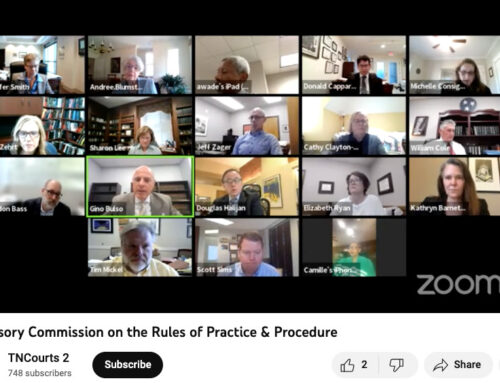Nashville housing board agrees to put more information on meeting agendas
Updated Friday, 4:30 p.m.
Nashville Metropolitan Development and Housing Agency told a Metro Council committee this week that it will improve what it shares with the public on its meeting agendas, and the board members will now file annual ethics and disclosure forms, according to The Tennessean.
The Tennessean had earlier reported how the board awards millions of dollars to developers, but operates with little oversight or transparency.
For example, while the board posts its meeting agendas online, the agendas are bare-bones with few clues as to what actually might be discussed. The public doesn’t much chance in guessing what an agenda item might mean. See an example here from January.

Also board members had not been filling out Metro’s annual financial disclosure form, where they would list items that could create conflicts of interest, such as real estate they own.
This from The Tennessean:
MDHA has been criticized for awarding tax-increment financing loans and selling public land without enough public disclosure or discussion. When booming Nashville hit an unexpected budget shortfall last year, attention turned to MDHA’s incentives, which reduce developers’ property tax bills in exchange for new jobs. That led to a new council committee that is separately looking into reforming this tax-increment financing, or TIF.
Charles Robert Bone, chairman of the MDHA Board of Commissioners, told the council committees Monday that “MDHA has a public perception issue.”
“While we may be in full compliance of the law and have additional oversight of the federal government,” Bone said, “if there are additional steps we can take to strengthen the transparency — and your confidence — in MDHA, that is in everyone’s interest.”
Harbison, the MDHA executive director, said the agency would post board agendas with summaries online the same day that board members receive the information. He stopped short, though, of agreeing to post online all supporting documentation. The agendas would typically be available on Fridays before Tuesday board meetings, he said.
As it stands, the agency publishes just a few words about each agenda item, which gives members of the public little chance to provide any substantive comment before the board votes.
“We believe this additional information will be useful to the public as they continue to attend our many board and committee meetings,” Harbison said in prepared remarks.
Perhaps the most substantive change will be the requirement that board members fill out Metro’s annual financial disclosure form. It forces appointees to list, for instance, any real estate they or their spouses own in Davidson County.
The Tennessean, by Reporter Mike Reicher, Jan. 14
It is unclear when the changes would start. The meeting agenda for February has not yet been posted. I put in a call to MDHA’s communications person, but have not yet heard back.
The January meeting agenda included few details. A news reporter who attended the Jan. 10 board meeting said the director gave a fairly detailed report of operations of MDHA which wasn’t reflected on the agenda.
Update, Jan. 18: MDHA’s spokeswoman said the changes will start with the February agenda. The intention was to start with the January agenda, but there were no “voting” items for the board on that agenda.
To give you an idea of what agendas looked like in 2018, here are a few other examples of agendas in December: committee meeting agenda, another one, and here’s a full board meeting agenda that includes an approval of a PILOT agreement but doesn’t name the company who is getting it.
The MDHA practices are sharply different from the Metro Nashville government, whose agendas includes links to the resolutions and bills that will be voted on, along with related supporting documents.
For now, it appears if you want to see the actual agreements and contracts being voted on, or any supporting documentation, you will have to request it in a public records request.
Be aware that this agency has tried to delay access to those records in the past, claiming they are not public until after the board votes. They were wrong.




